Opinion
PM Trudeau’s “Monetary Policy” gaffe could cost the Liberals the election. But will it?
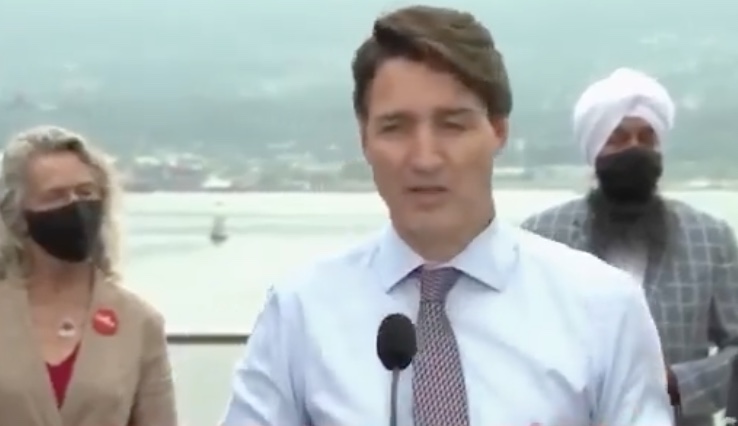
Back in 1993 things were not going well for Canada’s Progressive Conservative Government. Brian Mulroney’s government had served 2 mandates and Canadians were clearly ready to move on. The Conservatives decided Kim Campbell would be the best leader to bring a renewed excitement to their reelection hopes. Campbell was a fresh face and that was important to the party which was losing support quickly. She was also from Vancouver, which was a nice change for the party normally represented by leaders from Ontario or Quebec. Even more importantly, when she won the leadership she would become the first female leader of a country in North America. As Canadians would discover just a few months later though, no one cared about any of that. That campaign did not go well. The Conservatives not only lost. They were decimated right out of official party standing. The governing party won just 2 seats in the entire nation (Jean Charest in Quebec, and Elsie Wayne in New Brunswick). Kim Campbell did not even win her own seat. Henceforth the Reform Party represented the Conservative voice for the next two elections.
For one reason or another, Canadians simply did not connect with Kim Campbell. One of the biggest gaffes of that election campaign came when a reporter pressed Campbell for details on an issue and she replied “The election is not a time to discuss serious issues.” That was the wrong answer. Despite what she may have truly meant, all Canadians heard was “I don’t need to explain anything to you.”. That was exactly the wrong thing to say at the worst possible time.

Why bring this up now, 28 years later? Well Prime Minister Justin Trudeau has made his first major gaffe of this election campaign. And for those who care about monetary policy (which should be everyone who pays taxes and works or has savings, etc) it’s very likely as stunning a statement as Kim Campbell made three decades ago.
First some background. In 2021, Canadians find themselves in an astounding situation. When the covid pandemic hit last year governments all over the world shut down their economies for weeks, and then months. Government stimulus was the order of the day and Canada’s was among the most generous in the world. People were paid to stay at home. Businesses were paid to continue to provide jobs to people working from home. Landlords were paid to keep tenants afloat. All in all, government money is being spent at unprecedented rates.
To pay for all this the Trudeau government attempted to pass a bill through Parliament which would allow it to raise taxes at will without a budget and without even coming back to ask Parliament to present a plan or ask for approval. That didn’t go over so well. But instead of turning back the taps, or introducing a budget with higher taxes the government worked out a plan with the Bank of Canada. How this works basically is that every month the Bank of Canada prints out a few billion dollars, and the government uses that to pay for all the stimulus they want. Over the first year of covid that totalled about 350 Billion dollars!
The Bank of Canada has left the core function expressed in its mandate in order to print all this extra money. Despite it’s best efforts to decouple inflation from the printing of extra money, it’s not working. Canada’s inflation rate has been blowing through the target of 2% month after month after month.
This is the the mandate as expressed by the Bank of Canada itself on its website.
The Bank of Canada is the nation’s central bank. Its mandate, as defined in the Bank of Canada Act, is “to promote the economic and financial welfare of Canada.” The Bank’s vision is to be a leading central bank—dynamic, engaged and trusted—committed to a better Canada.
The Bank has four core functions:
- Monetary policy: The Bank’s monetary policy framework aims to keep inflation low, stable and predictable.
- Financial system: The Bank promotes safe, sound and efficient financial systems within Canada and internationally.
- Currency: The Bank designs, issues and distributes Canada’s bank notes.
- Funds management: The Bank acts as fiscal agent for the Government of Canada, managing its public debt programs and foreign exchange reserves.
The Bank of Canada’s mandate is expiring at the end of this year and the new mandate could change. Some are saying the Bank should continue to print money at an unprecedented rate and Canadians will learn to live with high inflation. Considering this drives up the cost of everything from our homes and vehicles, to the food we eat there could hardly be a more important issue. That’s why PM Trudeau’s response to this question in Vancouver this week is so stunning. When asked if he would consider a higher tolerance for inflation going forward here’s what he said.
Reporter Question about the renewal of the Bank of Canada mandate due at the end of 2021:
-Do you have thoughts about that mandate? Would you consider a slightly higher tolerance for inflation?
Prime Minister Justin Trudeau: “When I think about the biggest, most important economic policy this government, if re-elected, would move forward, you’ll forgive me if I don’t think about monetary policy.”
Of course this spurred an immediate reaction from the opposition Conservatives. That oppostion is perhaps best summed up in this address from Pierre Poilievre.
The question is, will Canadians punish Prime Minister Trudeau for either lacking basic economic knowledge, or not caring about it? Kim Campbell failed to win her own seat, but she did not seem to connect well with Canadians at all even before that election campaign. Justin Trudeau has so far been immune to gaffes. Even though he’s had more than 5 years in government, millions of Canadians stand by him loyally. Will this time be any different?
Brownstone Institute
First Amendment Blues

From the Brownstone Institute
By
You might think these are quite rare but not a bit of it; 13,200 of these were recorded in the last 12 months, and that’s around 36 a day, and they go on your record and sometimes mean you end up with no job. They also have new laws planned to control misinformation and disinformation, something not just confined to the UK. Similar laws are planned for Ireland, Australia, Canada, and the EU.
I’m envious. The US has something the UK doesn’t have, namely a First Amendment. Yes I know there are those who wish the US didn’t have it either, including, I understand, John Kerry and that woman who still thinks she beat Trump the first time around. Kerry kind of wishes that the First Amendment wasn’t quite so obstructive to his plans. But from where I stand, you should be thankful for it.
Not only does the UK not have a First Amendment, it doesn’t have a constitution either, and that makes for worrying times right now. Free speech has little currency with Gen Z and the way it looks, even less with the new UK Labour government. Even Elon Musk, who takes a surprising interest in our little country, has recently declared the UK a police state.
It’s not surprising. Take for instance the case of Alison Pearson, who had the police knocking on her door this Remembrance Sunday. They had come to warn her they were investigating a tweet she had posted a whole year ago which someone had complained about. They were investigating whether it constituted a Non-Crime Hate Incident or NCHI. Yes, you heard me right, a ‘non-crime’ hate incident and no, this is not something out of Orwell, it’s straight out of the College of Policing’s playbook.
If you haven’t heard of them, you can thank your First Amendment. In the UK you can get a police record for something you posted on X that someone else didn’t like and you haven’t even committed a crime. NCHIs are a way they have of getting around the law in the same way John Kerry would like to get around the First Amendment, except it’s real where I live.
Alison Pearson is a reporter for the Daily Telegraph, but that doesn’t mean she can write what she likes. When she asked the police what the tweet was which was objected to, she was told they couldn’t tell her that. When she asked who the complainant was, they said they couldn’t tell her that either. They added, that she shouldn’t call them a complainant, they were officially the victim. That’s what due process is like when you don’t have a First Amendment or a constitution. Victims of NCHI in the UK are decided without a trial or a defense. They asked, very politely, if Pearson would like to come voluntarily to the police station for a friendly interview. If she didn’t want to come voluntarily, they would put her on a wanted list and she would eventually be arrested. Nice choice.
It’s true that there has been a public ruckus over this particular case, but the police are unapologetic and have doubled down. Stung into action by unwanted publicity, they are now saying they have raised the matter from an NCHI to an actual crime investigation. Which means they think she can be arrested and put in prison for expressing her opinion on X. And of course they are right. In the UK that’s where we are right now. Pearson tried to point out the irony of two police officers turning up on her door to complain about her free speech on Remembrance Day of all days, when we recall the thousands who died to keep this a free country, but irony is lost on those who have no memory of what totalitarianism means.
The way things are looking I would say things can only get worse. The new Labour government has made it clear that it wants to beef up the reporting of NCHIs and make them an effective tool for clamping down on hurtful speech. You might think these are quite rare but not a bit of it; 13,200 of these were recorded in the last 12 months, and that’s around 36 a day, and they go on your record and sometimes mean you end up with no job. They also have new laws planned to control misinformation and disinformation, something not just confined to the UK. Similar laws are planned for Ireland, Australia, Canada, and the EU. Germany in particular is keen to remove all misinformation from the internet, I understand.
Whenever I see the word ‘misinformation’ these days I automatically translate it in my head to what it really means, which is ‘dissent.’ Western countries, former champions of free speech, the bedrock of liberty and individual choice, en masse it seems, now want to outlaw dissent. What is coordinating this attack on free expression, I don’t know, but it’s real and it’s upon us. We are slowly being intellectually suffocated into not expressing any opinion that others might find objectionable or that might contradict what the government said. If you had told me that would happen in my lifetime, I would have called you a liar.
I live in the UK, the home of the Bill of Rights and the Magna Carta, and the mother of parliamentary democracy. I was proud that we produced men like John Milton, John Stuart Mill, and Thomas Paine, that we understood the importance of the Areopagitica, the Rights of Man, and incorporated On Liberty into our social thinking. But those days seem long gone when police knock on your door to arrest you for an X post.
So I’m glad someone somewhere has a First Amendment even if we don’t. It may be your last defense in that republic of yours, if you can keep it.
Business
Trudeau’s new tax package gets almost everything wrong
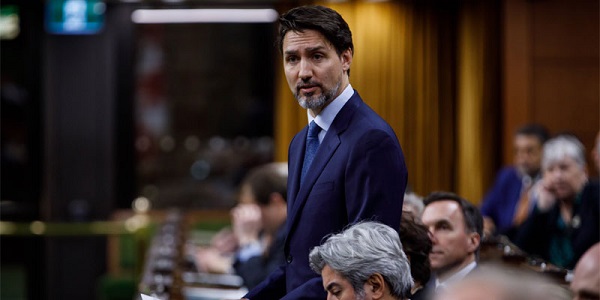
From the Fraser Institute
Recently, Prime Minister Justin Trudeau announced several short-term initiatives related to tax policy. Most notably, the package includes a two-month GST holiday on certain items and a one-time $250 cheque that will be sent to all Canadians with incomes under $150,000.
Unfortunately, the Trudeau government’s package is a grab bag of bad ideas that will not do anything to get Canada out of the long-term growth rut in which our economy is mired. There are too many to list all in one place, but here are four of the biggest problems with Prime Minister Trudeau’s tax plan.
- It reduces the wrong taxes. When it comes to economic growth, not all taxes are created equal. Some cause far more economic harm per dollar of government revenue raised than others. The government’s package creates a holiday on the GST for some items (only for two months) which is a mistake given that the GST is one of the least economically harmful components of the tax mix. Canada’s recent growth record is abysmal, and boosting growth should be a primary goal of any changes to tax policy. A GST cut of any duration fails this test relative to other tax cuts.
- Temporary tax holidays shift consumption in time, they don’t boost growth. The government’s GST reduction is actually a short-term tax holiday on certain items that will last two months. There are decades worth of economic research showing that when governments create short-term tax breaks, they may change the timing of consumption, but they won’t contribute to actual economic growth. Shifting consumption from the future to the present won’t help get Canada out of the economic doldrums. This is particularly true of the Trudeau tax holiday since purchases that Canadians may have made after the two-month holiday period will simply be shifted forward to take advantage of the absence of the GST. As noted above, there are better taxes to cut than the GST, but no matter what taxes we are talking about permanent reductions are vastly superior to temporary tax cuts like short-term holidays.
- One-time tax rebates don’t improve economic incentives. Perhaps the worst element of the Trudeau government’s announcement was a plan to send $250 cheques to all Canadians earning under $150,000. One-time tax rebates are a terrible way to provide tax relief. When you cut income tax rates, you improve incentives for people to work and invest because they get to keep a larger share of their earnings. This helps the economy grow. One-time rebates that you get regardless of the economic choices you make has no similar effect. This means that the rebate with its $4.7 billion price tag won’t help Canada’s poor growth performance.
- It borrows from the future to give to the present. The federal government is currently running a large deficit. This raises the question of who will have to pay the $4.7 billion bill for the one-time payments announced today. The answer is that the government will have to borrow the money and therefore future taxpayers will have to either pay it off or service the extra debt indefinitely. The money the Trudeau government will send out won’t come out of thin air, it’ll have to be borrowed with the burden falling on future taxpayers.
The Trudeau government got one thing conceptually right, which is that there are advantages to reducing the tax burden on Canadians. Unfortunately, the policy package it has put forward to provide tax relief gets everything wrong. It reduces the wrong taxes, shifts taxes temporally rather than cutting them, does nothing to improve economic incentives, and burdens future taxpayers. With the holiday season around the corner, this attempt at a gift to Canadian taxpayers is the economic equivalent of a lump of coal in the stocking.
Authors:
-

 Aristotle Foundation2 days ago
Aristotle Foundation2 days agoToronto cancels history, again: The irony and injustice of renaming Yonge-Dundas Square to Sankofa Square
-
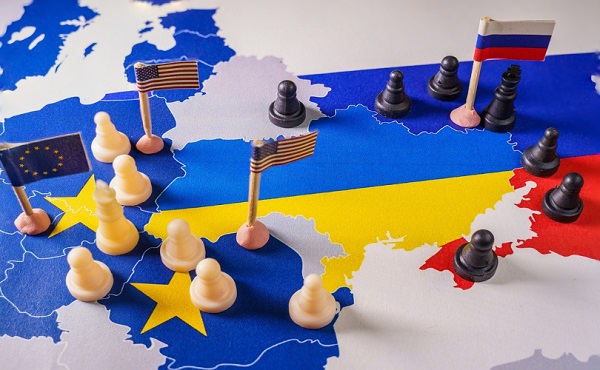
 conflict2 days ago
conflict2 days agoUS and UK authorize missile strikes into Russia, but are we really in danger of World War III?
-

 Business1 day ago
Business1 day agoCBC’s business model is trapped in a very dark place
-

 armed forces1 day ago
armed forces1 day agoJudge dismisses Canadian military personnel’s lawsuit against COVID shot mandate
-

 Alberta18 hours ago
Alberta18 hours agoAlberta fiscal update: second quarter is outstanding, challenges ahead
-
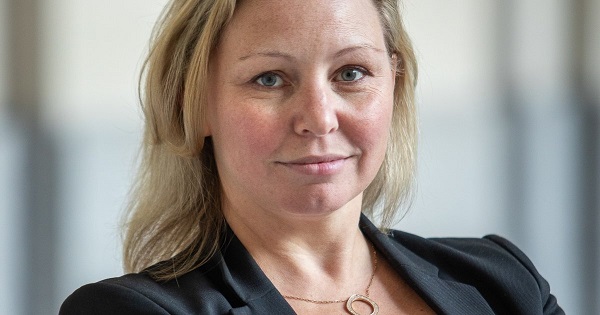
 Energy1 day ago
Energy1 day agoWhat does a Trump presidency means for Canadian energy?
-
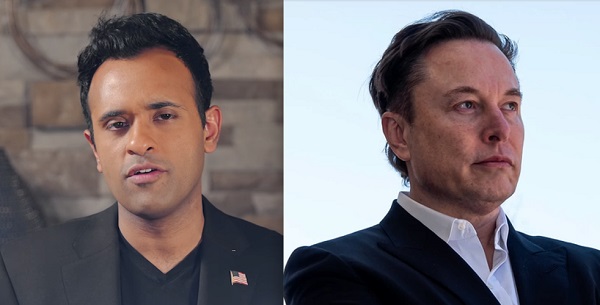
 International1 day ago
International1 day agoElon Musk, Vivek Ramaswamy Outline Sweeping Plan to Cut Federal Regulations And Staffing
-

 conflict2 days ago
conflict2 days agoPutin Launches Mass-Production of Nuclear Shelters for his People








